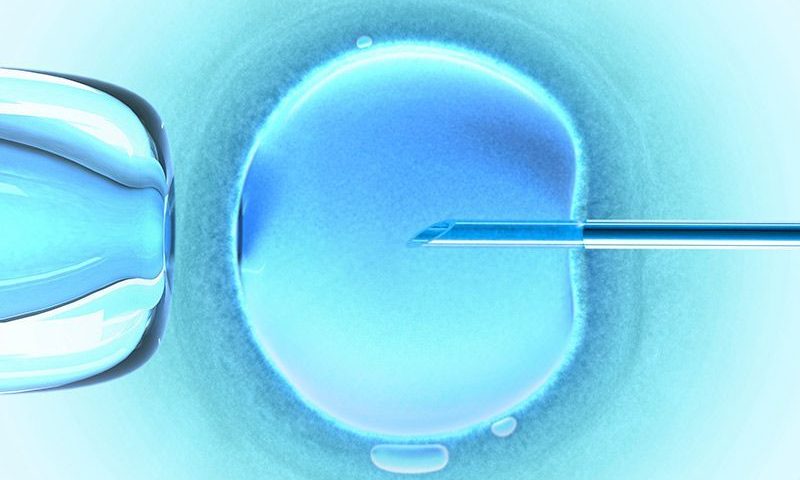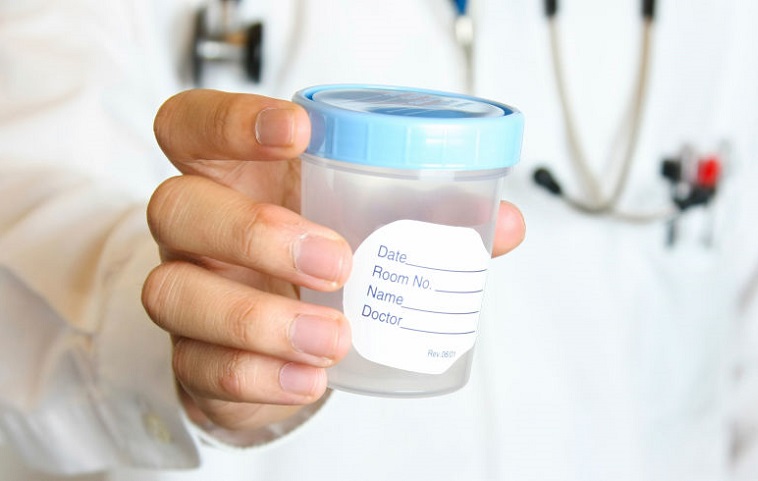Considerations after Embryo Transfer

What is Delayed Commitment in IVF?
3 October 2022
Comprehensive Chromosome Scan
3 October 2022Considerations after Embryo Transfer

Considerations after Embryo Transfer
IVF treatment is one of the most successful treatments for couples who are unable to have a child naturally. Couples who are unable to have a child due to various reasons of male or female infertility can become pregnant through in vitro fertilization. There are many factors that influence this success rate of IVF treatment, which has a very high success rate. In IVF treatment, the general health of the mother and father, the quality and viability of the reproductive cells, the experience and equipment of the doctors conducting the treatment, the technical and physical characteristics of the center where the application is made, and Of course, the quality of the embryo obtained as a result of fertilization affects the success of the treatment . In the process leading to success and a live birth, the time between embryo transfer and pregnancy test is very important. After a successful embryo transfer, the success of in vitro fertilization becomes inevitable once the right environment is created in which the embryo can attach and develop.
In IVF treatment, mother and father candidates first try to achieve pregnancy naturally over a period of time. Then, many tests and examinations are carried out in the IVF center to identify the problem or problems preventing pregnancy. After that, the treatment of the detected problem is applied. The mother-to-be receives egg-enhancing treatment and monitors the mother-to-be’s ovulation and sufficient egg growth. Then, on the day determined by the doctor, the eggs are collected and the sperm is taken from the father on the same day. In the germ cells of the future mother and father, the most suitable for a healthy pregnancy are selected, and fertilization is carried out in the laboratory. The highest quality and healthiest embryos obtained as a result of fertilization are selected and transplanted into the uterus of the expectant mother. On the 12th day after this transfer process, a pregnancy blood test is done to determine if the treatment was successful or not. Considering that all these described stages pass without any problems, it can be understood that the 12-day period after embryo transfer is very important for maintaining pregnancy. In this regard, couples who want to undergo IVF should choose an IVF center by studying the experience and success story of the doctor, the technological equipment of the center where the procedure will be carried out, and especially considering the possibility of assistance, future mother in matters to be considered after embryo transfer.
Before Embryo Transfer
Until the time for embryo transfer has come, the doctor knows the expectant mother well and owns all the data and information. Before embryo transfer, doctors usually perform a test transfer and determine the cervical canal and the position of the uterus of the expectant mother.
Embryo transfer is carried out under ultrasound control. In this way, the catheter can be placed more easily and it can be ensured that Embryosremain in the correct place in the uterus. In this way, the embryo transfer can be performed more easily and successfully as the entire inside of the uterus can be seen.
The day of embryo transfer is determined by the doctor. However, when this is done, there are certain factors that need to be considered. Since the metabolism and body of every woman and man have different characteristics, the reproductive cells and reproductive system also have different characteristics. In this context, the doctor evaluates and makes a decision specifically according to the characteristics of his patient. The day of embryo transfer is determined by taking into account many factors, such as the woman’s age, treatment history, number and quality of embryos. Embryo transfer is usually carried out on the 2nd-3rd or 5th day after fertilization. For IVF to be successful, the embryo and the inside of the uterus must be in harmony in order to achieve implantation and pregnancy. Here, IVF specialists prepare the necessary infrastructure to achieve this harmony.
Embryo transfer
On which day the IVF specialist will transfer the embryos, the check is carried out in the morning of that day. Then, after selecting the embryos, the embryologist brings them from the laboratory in a special catheter and hands them over to the doctor who will perform the procedure. In the meantime, Embryosremain in the uterus following an ultrasound taken by the doctor from the abdomen. Under normal conditions, the embryo transfer process does not require anesthesia and takes about 5-10 minutes. However, if the patient has a special condition, the doctor may also perform the procedure while applying anesthesia.
To support the uterus after embryo transfer, the doctor gives the patient hormonal preparations in the form of injections or suppositories. In the case of an embryo transfer pregnancy, this support will continue until the 10th week of pregnancy. However, when treatment fails and pregnancy does not occur, the mother-to-be has menstrual bleeding and the treatment is stopped. Already on the 12th day after the embryo transfer, a blood test for pregnancy is done.
The last stage of IVF treatment is the transfer of the resulting embryos. 1-2 embryos of the highest quality are left in the mother’s uterus, selected among Embryoscreated in the laboratory. After this process, Embryosare expected to attach to the uterus (endometrium) and pregnancy will occur.
As described above, embryo transfer is a simple procedure that does not require anesthesia. Since the embryo transfer procedure is performed under the supervision of an abdominal ultrasound, the woman’s bladder must be full during the procedure. The doctor wants the expectant mother to be cramped before the embryo transfer, if not, the expectant mother drinks about 2 liters of water and waits for compression.
During embryo transfer, the IVF specialist first uses a vaginal instrument to inspect the entrance to the uterus, called the cervix, and cleans the cervix with a warm liquid. Meanwhile, the embryo, collected from the embryology laboratory, is drawn into a soft, long, thin silicone transfer catheter with an injector attached to the tip, and is prepared for transfer. Finally, the IVF specialist passes the tip of the transfer catheter through the cervix and leaves Embryosin the uterine cavity.
After the embryo transfer process, the patient rests for 15-20 minutes and is taken to the ward. A woman who rests in a room for about 1-2 hours can return to her home whenever she wants and when she is ready. After the transfer, doctors and nurses explain in detail what the expectant mother should pay attention to before taking a blood test for pregnancy.
What should be considered after embryo transfer?
- Sexual intercourse after embryo transfer
It is believed that sexual intercourse within 12 days after embryo transfer in IVF, that is, in the period before the pregnancy test, may pose a certain risk to a woman. First of all, the ovaries of a woman, containing more than one corpus luteum and enlarged due to hyperexcitation syndrome, are at risk of rupture during intercourse. In this context, pain and even significant intra-abdominal bleeding can occur during intercourse after an embryo transfer. In this regard, it is recommended to avoid sexual intercourse in IVF treatment, from embryo transfer to pregnancy test, due to the risk of developing ovarian hyperstimulation syndrome.
- Sports activities after embryo transfer
It is recommended that every person of all ages engage in sports and exercise regularly. Physical exercise can protect a person’s physical, emotional and mental health. However, when it comes to the inability to conceive naturally and undergoing IVF treatment, this situation develops in the form of sports as often as the doctor deems appropriate, and at intervals allowed by the doctor. Exercise after embryo transfer in IVF treatment can prevent pregnancy for several reasons. The first of these is the risk that the mechanical vibrations created by fast exercise, such as running and other sports that require contact with another person, could dislodge an embryo trying to hold on. Second, after embryo transfer, rapid exercise can increase average body temperature by up to 2 degrees. It has been reported that the sudden rise in body temperature of a pregnant woman leads to abnormalities leading to miscarriage and death. In this context, it is safer for a successful pregnancy to avoid intense cardiovascular exercise after embryo transfer and to do light exercise such as walking for up to 30 minutes a day.
- Nutrition after embryo transfer
For couples who want to have a baby, the first thing they should pay attention to is a healthy lifestyle and eating habits. In this context, of course, it is important to eat right before and after IVF treatment, which is used when there is a problem preventing pregnancy. In order for the reproductive cells to be healthy, first of all, both the expectant mother and the future father need a healthy diet. Because a healthy body means healthy reproductive cells, and healthy reproductive cells mean a healthy baby. After the embryo transfer, you need to feed according to the doctor’s recommendations. There is a healthy nutrition program that is important for the attachment and development of the baby, which should be applied especially in order for the embryo to attach. After embryo transfer, folic acid and certain vitamins as supplements increase the success of embryo attachment.
- Social life after embryo transfer
According to studies of IVF treatment and social life after it, no negative effects of either excessive rest or active life have been found. In addition to resting for 1-2 hours after the embryo transfer, the expectant mother has the opportunity to continue her life, avoiding excessive heavy loads. In this context, the situation that will most negatively affect the adhesion of the embryo in social life is stress.
The problems that expectant mothers may face in their professional life and social environment after an embryo transfer are dangerous because they cause stress. A stressful life is certainly a negative factor for an embryo trying to hold on. For this reason, the expectant mother should avoid stress in her life and expect understanding from others. In fact, if necessary, she should receive psychological support in this regard.
After the embryo transfer, expectant mothers can continue their working life and normal daily life as long as there is no very stressful environment and they are not exposed to chemicals that can harm their reproductive health.
- Rest after embryo transfer
Couples who cannot have a child naturally want to have a child through in vitro fertilization. For this reason, IVF treatment is very important for expectant mothers and fathers. Women who have undergone IVF treatment take into account almost every detail for a healthy pregnancy. In this regard, some expectant mothers comply with bed rest during IVF treatment until a blood test for pregnancy after embryo transfer, that is, within 12 days after embryo transfer. During the periods when IVF treatment was first used, expectant mothers were asked to lie down for a short or long time before embryo transfer. However, in recent experimental studies, there was no significant difference in pregnancy rates between patients hospitalized for a long time after embryo transfer and women who continued their daily lives as a result of a successful transfer. In this context, unless otherwise indicated by a doctor, expectant mothers can safely return to their daily lives. Therefore, it is believed that the state of rest after embryo transfer is not very effective for the success of pregnancy. However, the recommendation and discretion of the physician is the most important issue for this.
- Service life after embryo transfer
When couples who have not been able to have a child for a long period of time start to conceive a child through in vitro fertilization, they have additional hope and spend time and money. Thus, there is the highest level of anxiety and attention in IVF treatment. In this context, both mother and father candidates show extreme concern for the success of the treatment. In addition, relatives of couples undergoing treatment also put a lot of pressure after embryo transfer. For the mother-to-be, it would be like an obligation to take a break from work. However, in fact, it is enough for the expectant mother to lead a stress-free life after embryo transfer, as is usually the case with in vitro fertilization. In this context, if the working environment is stressful, you can take a vacation, not necessarily distracted from a calm working life. At the same time, it should be borne in mind that time off from work and permanent stay at home can create separate stress for some expectant mothers.
- Taking a bath after embryo transfer
On average, 24 hours after embryo transfer during IVF, it is not harmful for the expectant mother to take a bath with warm water. However, for a certain period of time after the transfer, bathing in hot water is not recommended at any time during pregnancy.
What is prohibited after embryo transfer
Problems to be avoided by the expectant mother after embryo transfer are the rules that almost everyone should follow for a healthy life. In this regard, in general, expectant mothers should refrain from smoking and drinking alcohol during pregnancy and IVF. In addition to the fact that the expectant mother is forbidden to smoke, especially after the transfer of embryos, they are not even allowed to be in smoking areas.
Important considerations after embryo transfer
- Expectant mothers who work at a busy pace may benefit from resting at home for the first three days after an embryo transfer. However, during this period, expectant mothers should continue their daily activities and should not completely observe bed rest.
- After the embryo transfer, sneezing, coughing, turning to the right and left during sleep do not adversely affect the attachment of the embryo. It is not harmful for the expectant mother to go up and down the stairs.
- The mother-to-be should refrain from heavy exercise and heavy work until she becomes pregnant after the embryo transfer and should be careful not to make sudden movements. In fact, heavy exercise should not be done during pregnancy.
- After the embryo transfer, the expectant mother can travel for 2-3 hours. In this regard, in cases where it is necessary to overcome longer distances, it is beneficial for the expectant mother to go after the break.
- After the embryo transfer, the expectant mother may see breast fullness, menstrual pain in the groin, pink-red, brown drops. When the expectant mother is faced with such situations, she does not need to be afraid and worry.
- The mother-to-be can take a warm shower after the embryo transfer. However, taking hot showers throughout your pregnancy is not recommended.
- Expectant mothers should refrain from acidic drinks, coffee and herbal teas both after embryo transfer and throughout pregnancy.
- Smoking and alcohol, which are harmful to people of all ages, are strictly prohibited after embryo transfer to a pregnant woman.
- After the embryo transfer, it is good for the expectant mother to avoid excessively spicy and fatty foods, monitor the consumption of fresh vegetables, fruits and protein foods, and drink plenty of water.
- Neither before nor after pregnancy, expectant mothers at any time in their lives should not take any medication without consulting a doctor.

